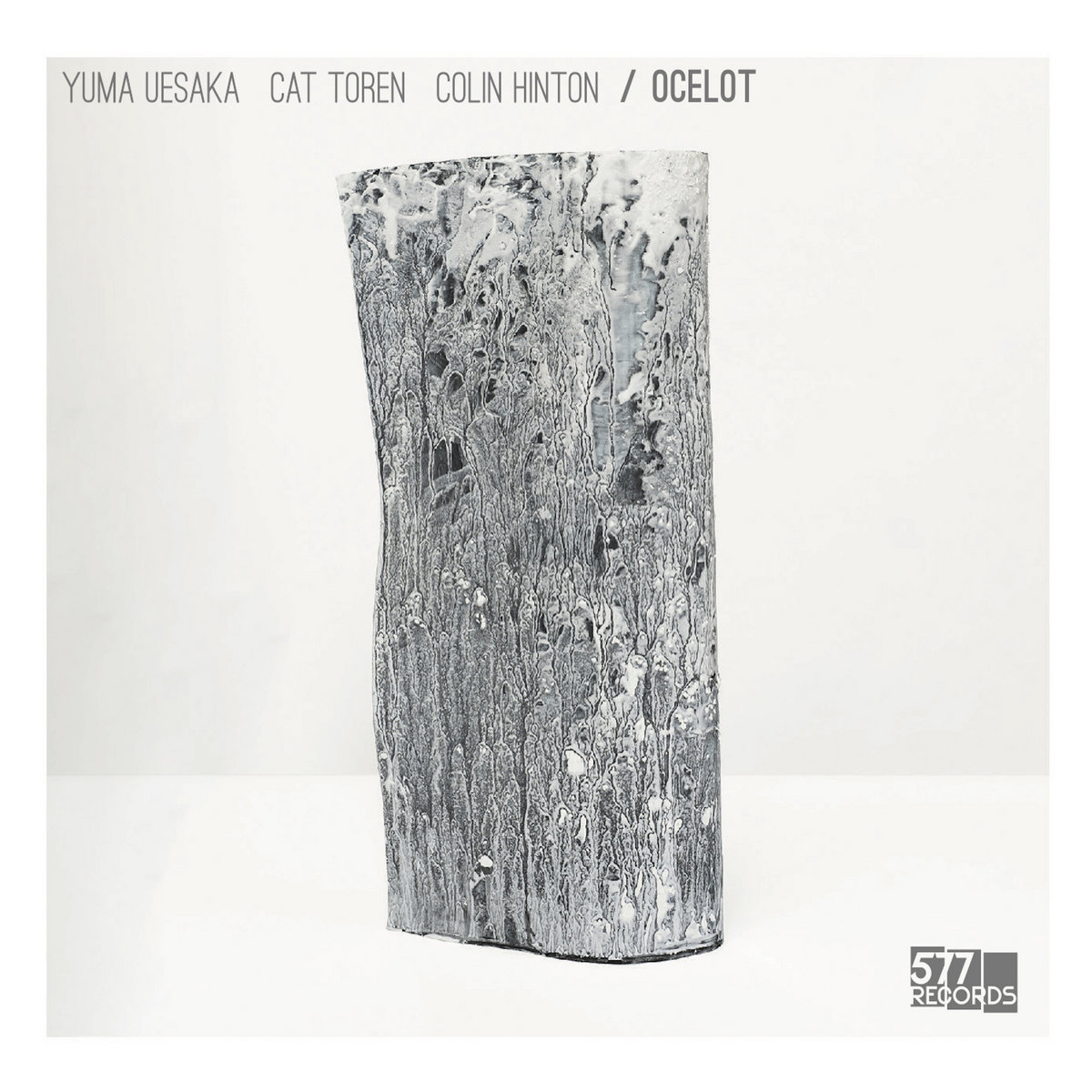Ocelot is a collaborative trio featuring pianist Cat Toren, saxophonist/clarinetist Yuma Uesaka, and drummer/percussionist Colin Hinton. Their music is part of the increasingly prominent tradition of cross-pollination between jazz and 20th-21st century classical music, exemplified by composer-performers such as Tyshawn Sorey and Anna Webber. Though all three members of Ocelot are composers with distinct voices, a true highlight of their debut record is the unified, seemingly ego-free approach of interaction with each member’s material, lending Ocelot a cohesion that’s often elusive to collaborative band formats. While disparate influences are audible in the compositions, the record’s eight tracks are unified by consistent themes of orchestration and ensemble interaction that demonstrate the band’s history together.
In a manner reminiscent of Paul Motian’s legendary bassless trio, Ocelot’s unconventional instrumentation allows the band to devise its own rules of orchestration according to the unique affinities of its members. Hinton’s use of pitched percussion and gongs stands out immediately, as does Uesaka’s impressive command of microtonality and extended techniques that enrich the trio’s sonic palette. On repeat listens, Toren’s pianistic sensibility also became one of my favorite aspects of the record. Her control of touch brings significant emotional energy to harmonies and melodies that could have easily rung cold and alienating. Toren’s ability to modulate intensity without overpowering the band lends to the record’s atmosphere of restraint and unpredictability.
Whether or not the soundscape was intentionally conceived, or an organic emergence of Ocelot’s performance practice, the record’s soundscape is highly distinctive. The way the high clarinet, piano, and glockenspiel blend and contrast with the spectral warmth of gongs, cymbals, and saxophone multiphonics occasionally give the impression that the trio is a single, alien instrument. When combined with forms that deftly employ improvisation, through-composition, and the fertile gradient between them (not to mention the obvious chemistry of the trio), the result is a unique record that stands out among others in its idiom.

